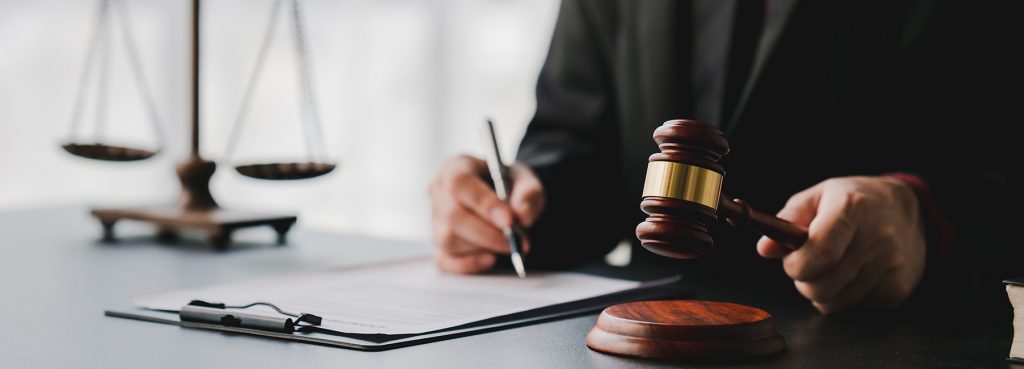Domestic Violence Charges: Navigating the Legal Process and the Role of a Criminal Defense Attorney
What is the role of a domestic violence defense attorney? Defending their client like nothing else in the world matters.

Role of a Domestic Violence Defense Attorney
Domestic violence is a significant concern affecting individuals and families throughout Michigan. When domestic violence allegations are made, a potentially daunting legal process begins. Below is a comprehensive overview of the role of a domestic violence defense attorney when fighting these complex and high-stakes allegations, concentrating on the relevant legal process and court procedures.
A domestic violence defense attorney plays a crucial role in the legal system by representing individuals accused of domestic violence offenses. Their primary responsibility is to protect their client’s rights throughout the legal process. Top lawyers provide counsel, navigate the complexities of the law, and present evidence and arguments to defend their clients against the charges. A robust defense often involves examining the credibility of witnesses, challenging the evidence presented by the prosecution, and ensuring that their client’s side of the story is heard and respected. In addition to courtroom representation, a domestic violence defense attorney may negotiate with the prosecution to reach plea agreements or other resolutions. Ultimately, the role of a domestic violence defense attorney is to achieve the best possible outcome for their client, whether it be a dismissal of charges, a reduced sentence, or a favorable verdict at trial.
Understanding Domestic Violence Charges
Domestic violence charges encompass a broad spectrum of allegedly abusive behaviors occurring within a domestic setting, often involving spouses, partners, family members, or cohabitants. These allegations can include claims of physical violence, emotional abuse, harassment, financial control, and more. When someone faces such allegations, it is essential they understand the legal process so they can make informed, educated decisions about their representation and legal options.
For several reasons, understanding the legal process when facing domestic violence charges is crucial. Firstly, comprehension of the system allows the accused to make informed decisions about their case, such as whether to accept a plea deal or proceed to trial. Knowledge of the process can reduce uncertainty and anxiety, as the individual knows what to expect at each stage. Moreover, a clear grasp of the legal procedures can empower the accused to engage with their defense actively, providing pertinent information and collaborating more effectively with their attorney. Understanding one’s rights, potential consequences, and the nuances of the evidence can also prevent unintentional self-incrimination and enhance the chances of a favorable outcome. In essence, when someone is well informed about the legal process and the role of a domestic violence defense attorney, they are better equipped to navigate the complexities of the justice system and advocate for their interests.

The Role of a Domestic Violence Defense Attorney Precharge -Legal Representation
On a precharge basis, a defense attorney acts proactively to intervene and potentially influence the outcome before formal domestic violence charges are filed. In this early stage, the attorney’s role includes several key responsibilities:
Client Consultation and Fact Gathering: The attorney will meet with the potential client to gather all relevant details about the incident and gain an understanding of the context and specifics of the alleged event.
Evidence Preservation: If there are potential pieces of evidence, like surveillance footage, witness statements, or medical records, that could be favorable to the defense, the attorney will act quickly to preserve them before they can be lost or destroyed. Sometimes, evidence favorable to the defense that is in the possession of law enforcement gets lost or destroyed. A defense attorney can help ensure the preservation of exculpatory evidence.
Liaising with Law Enforcement: The attorney might communicate with detectives or other law enforcement officers involved in the investigation to provide information that may persuade them not to file charges or lesser charges. Also, a respected defense attorney can negotiate to ensure the defendant has an opportunity to self-surrender instead of the police arresting them at home or work.
Engaging with the Prosecutor: Before charges are officially filed, the attorney can have a dialogue with the prosecutor, offering mitigating evidence or reasons why charges should not be pursued. The Defense Team with LEWIS & DICKSTEIN, P.L.L.C. has helped countless clients avoid charges based on pre-charge negotiations and discussions with law enforcement officers, agents, and prosecutors.
Counseling the Client: Importantly, the attorney will advise the client on what to expect and how to conduct themselves during any potential questioning or investigation to prevent further complications or unintentional self-incrimination. The defense lawyer can also counsel the client on what pre-charge rehabilitative measures, such as counseling, assessments, and education, might help reduce charges or secure a more lenient sentence.
Preparation for Potential Charges: Should charges be forthcoming, early engagement with an attorney allows for a more robust defense preparation. The attorney can begin building a defense strategy, identifying potential weaknesses in the prosecution’s case, and lining up resources like investigators or expert witnesses. Through proactive preparation, the lawyer can ensure their client has every possible advantage before the case gets to court. For example, by securing employment documentation, community involvement, family commitments, community support, etc., the lawyer gives their client the best chance of getting a personal bond at arraignment.
Engaging a domestic violence defense attorney on a precharge basis can be instrumental in potentially preventing charges from being filed or laying the groundwork for a strong defense should the case proceed.

Law Enforcement Investigation
Law enforcement officers will investigate the allegations upon receiving a domestic violence report. They will collect evidence, interview witnesses, and assess the situation to determine whether charges should be filed. Anyone accused of domestic violence should respectfully decline to answer any police questions. It is best to say, “I invoke my right to remain silent and request the presence of a lawyer for any questioning.” Any answers or statements will be admitted as evidence against the defendant in court.
Police bias and presumptions can have a profound influence on domestic violence investigations. When officers approach a situation with preconceived notions or beliefs about the parties involved, or if they prematurely conclude that a crime has occurred without thoroughly examining evidence or listening impartially to all sides, the integrity of the investigative process is jeopardized. Bias can manifest in various ways, from giving undue weight to one party’s testimony over another’s to overlooking or misinterpreting crucial evidence. Furthermore, victims or accused individuals might feel unheard or marginalized, leading to a lack of cooperation with the investigation. Such preconceived attitudes can also result in unjust arrests or charges, further eroding public trust in the justice system. It’s crucial that police approach domestic violence cases with an open mind and a commitment to impartiality, ensuring a fair and thorough investigation.
How Can A Domestic Violence Defense Attorney Help with a No Contact Order?
To safeguard the alleged victim from potential harm, the criminal judge will likely issue a restraining order, also known as a protective order or no-contact order, as a condition of the defendant’s bond. A no-contact order restricts the alleged abuser from directly or indirectly contacting or approaching the victim. A no-contact order might also include witnesses, children of the accused and the victim, and work or residential addresses. A criminal defense attorney can advise the defendant on navigating these orders. When the alleged victim and defendant want a restraining order dropped, the attorney can file a motion requesting dismissal of the restriction.
The Arrest and Booking Process
If police officers find probable cause to believe an assault occurred, they will proceed to arrest the accused person. The individual will be booked into custody, and their personal information, including fingerprints and a mugshot, will be recorded. Immediately after the arrest, or within a day or two, the accused can post bail or await their initial court appearance. Anyone facing domestic violence allegations should seek the immediate representation of a qualified, respected defense attorney.
Initial Court Appearance and the Arraignment
During the initial court appearance, a judge or magistrate will inform the accused of the charges against them. The defendant will enter a plea, typically “not guilty” or “stand mute.” The judge will decide the amount of bail and various bond conditions. The judge might set an interim bond if the prosecutor has not determined the final charges. An interim bond is a temporary bond imposed so the defendant can be released from custody while the prosecution decides the crimes they will file in court.
Bail, Pretrial Release, and Bond Violations
Bail is the amount of money required for the accused’s release before trial. A criminal defense attorney can assist in negotiating favorable bail conditions. Common bond conditions include a requirement to post bail, no contact with the alleged victim, travel restrictions, prohibition against possessing or using firearms, abstinence and testing for alcohol and drugs, and more. A skilled defense attorney will persuade the judge to reduce or eliminate the amount of money required to post bail and the terms and conditions necessary for bond compliance. A bond with no required deposit is called a personal bond. If the defendant violates the terms or conditions of bond while on pretrial release, the judge might revoke the bond and take the defendant into custody, increase the amount of the bail, or impose additional terms the defendant must follow.
Pretrial Conference
After the arraignment, the case will proceed to one or more pretrial conferences. At the pretrial, the prosecution and defense discuss potential plea bargains, settlement options, disputes regarding evidence, potential motions and evidentiary hearings, and sentencing options. A skilled criminal defense attorney will advocate for their client’s interests during these negotiations. Assuming the client desires a resolution without a trial, the attorney will fight for dismissal or a plea bargain to reduced charges and a lenient sentence. If the case cannot be resolved with a dismissal or plea bargain, the Court will schedule a bench or jury trial date.

The Trial
The domestic violence case proceeds to trial in cases where no settlement is reached. The prosecution and defense present their evidence during the trial and call witnesses. The judge or jury then determines the verdict based on the evidence and arguments. Here’s a breakdown of the specific responsibilities and goals of a top criminal defense lawyer during a jury trial when defending a client facing domestic violence allegations:
- Opening Statement: Present an opening statement that counters the prosecution’s narrative, sets the tone for the defense, and provides a roadmap of what the defense will demonstrate.
- Challenge Prosecution’s Evidence: This involves (1) cross-examining the prosecution’s witnesses to point out inconsistencies, biases, or other factors that might make them unreliable, (2) contesting physical evidence, possibly by questioning its collection, storage, or relevance, and (3) highlighting any potential breaches of the defendant’s rights, such as illegally obtained evidence.
- Present Defense Evidence: To present the defense evidence, the domestic violence defense attorney might (1) call witnesses who can support their client’s version of events or alibi, (2) introduce physical or digital evidence that can cast doubt on the prosecution’s case or support the defendant’s claims, and (3) if relevant, provide expert testimony to explain specific elements of the case or counter the prosecution’s experts.
- Maintain a Favorable Demeanor: A defense attorney must be acutely aware of the jury’s perceptions. How witnesses, the defendant, and the attorney themselves are presented can influence the jury’s opinion.
- Raise Reasonable Doubt: The primary goal and role of a domestic violence defense attorney is to ensure that the jury has reasonable doubt about the client’s guilt. Every action, question, and piece of evidence presented by the defense should aim to foster this doubt.
- Protect the Defendant’s Rights: Ensure the client’s rights are protected throughout the trial, objecting to inappropriate questions or evidence. Also, the attorney must ensure the client does not incriminate themselves if they testify.
- Closing Argument: Summarize the case from the defense’s perspective, emphasizing where the prosecution failed to meet the burden of proof and highlighting areas of reasonable doubt. The aim is to convince the jury of the defendant’s innocence or, at the very least, that there exists a reasonable doubt about their guilt.
- Jury Instructions: Advocate for specific jury instructions that favor the defense or ensure the jury understands the legal standards (e.g., the definition of reasonable doubt).
- Preservation of the Record: The defendant has a right to appeal in the unfortunate event of a conviction. An appeal is limited to errors made on the record during the trial. The defense attorney must make all available objections to create a record for the appellate process. If the lawyer fails to object, an issue might not be considered in the appeal.
- Post-Trial Motions: Depending on the verdict and the events of the trial, the defense attorney may need to file post-trial motions, such as a Motion for a New Trial.
Throughout the trial, the attorney’s primary objective is to present a compelling counter-narrative to the prosecution’s case, ensuring the jury understands there are two sides to the story and emphasizing the presumption of innocence until proven guilty.
The Role of a Criminal Defense Attorney
A criminal defense attorney is an essential advocate for those accused of domestic violence. They provide invaluable assistance in various aspects of the legal process, including:
- Legal Counsel: A defense attorney offers legal advice and guidance to the accused, ensuring they understand their rights and options.
- Evidence Review: They meticulously review the evidence against the accused, identifying weaknesses or inconsistencies that may be used in their defense.
- Strategy Development: Defense attorneys work to formulate a strategic defense plan, including selecting the most effective defense arguments and evidence.
- Negotiations: In cases where a settlement is possible, defense attorneys negotiate with the prosecution to secure favorable terms for their clients.
- Trial Representation: Should the case go to trial, a skilled defense attorney represents the accused, presenting a compelling defense and challenging the prosecution’s case.

The Importance of Legal Guidance for Domestic Violence Charges
Domestic violence charges are serious, and the legal process can be complex and challenging. Understanding the steps involved and seeking qualified, experienced legal representation, such as a criminal defense attorney, is crucial for those accused of domestic violence. With the proper guidance and support, individuals can navigate the legal system with the realistic expectation of achieving a favorable outcome.
If you or someone you know is facing domestic violence charges, it is essential to consult with a qualified criminal defense attorney, such as the lawyers with LEWIS & DICKSTEIN, P.L.L.C., who can provide the necessary legal assistance and representation. We’ve represented thousands of clients facing domestic violence charges and have an unparalleled track record of success. Call us for a free consultation. We will take the time to talk with you, answer your questions, and work with you to develop a winning strategy.
Domestic Violence-Related Links
Call us today at (248) 263-6800 for a free consultation or complete an online Request for Assistance Form. We will contact you promptly and find a way to help you.








